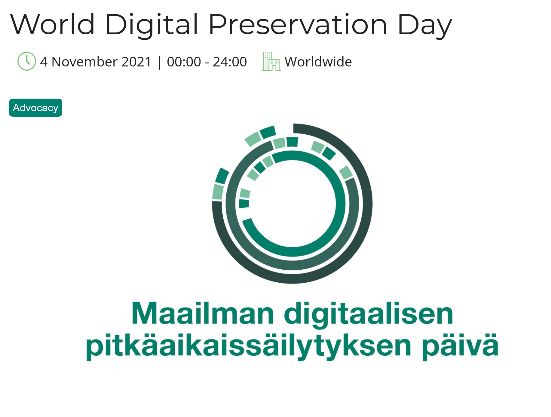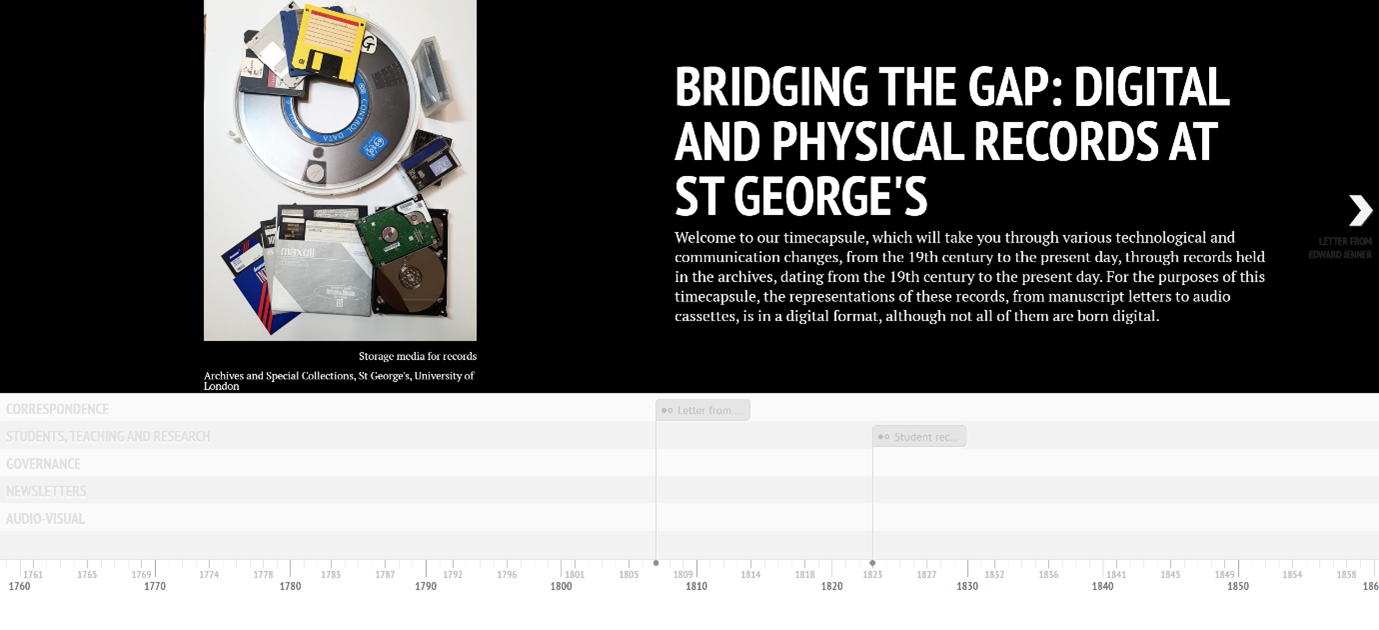This blogpost has been written by St George’s Records Manager Kirsten Hylan, Archivist Juulia Ahvensalmi, Records Manager Kirsten Hylan and Research Data Support Manager Elizabeth Stovold.
The World Digital Preservation Day theme for 2021 is ‘Breaking Down Barriers’ and focuses on how digital preservation supports digital connections, unlocks potential and creates lasting value. In this post we’ll look at the work we’ve been doing to identify areas in the university holding records of interest for long-term preservation. By connecting with people and areas of the university who previously were not involved in the project we are unlocking the potential of the records and creating lasting value.
You can engage with the day and find out more about our work on the Museum and Archives Twitter account, and using the hashtags #WDPD2021 and #SGULwdpd2021.

World Digital Preservation Day, organised by Digital Preservation Coalition, an international event to highlight the importance of digital preservation. The text displayed here is in Finnish.
Breaking Down Barriers
St George’s, University of London (SGUL), is a specialist health and medical sciences university in South-West London. Since 2016 the Archivist, Research Data Support Manager, and Records Manager have worked together to advocate for digital preservation, successfully winning funds for a system, and identifying areas that hold records that require a long-term storage solution.
But how do we reach people outside our networks to broaden the digital preservation conversation and demonstrate how it has relevance to those people who hold the records? And how do we identify records for preservation in areas that previously held none?
Two approaches have so far helped us broaden our scope:
-
Our Covid-19 story and the Executive Board - During the pandemic we have attempted to collect all Covid-19 material produced by SGUL, including communications, social media, governance records, and research. However, to date we were conscious that we weren’t capturing or having sight of all the material produced. Our Executive Board has oversight of strategic and operational matters at SGUL. In May we took a paper regarding our work to the Executive Board and as result several members of the Board highlighted areas in the university generating education, equality, diversity, and inclusion, and REF submission records that should be considered for permanent preservation. The move to online education, for instance, has been a huge change and the records documenting the transition should be preserved.
-
We expanded our project board to include representatives from External Relations, Communications and Marketing and from Joint Research and Enterprise Services. By inviting new voices on the board we obtain different perspectives and reach across barriers.
Reaching out to people has led to new insights, for us and hopefully also for those we have spoken with. We have for instance had conversations about how the use and the perceived value of records can change over timeDepending on circumstances, records that may not be considered of archival significance actually have consequence beyond their normal lifecycle and are of lasting value to the university.
We have demonstrated this in our time capsule – another idea that came about from our lovely new board members. We hold records in the archives in various formats: there are manuscripts, printed books, typescript minutes, photographs, audio cassettes, LP records, microfilm, floppy disks, emails, as well as various digital renditions of each of these as .pdf, .jpeg and .wav files. Often it is easier to see the value of an old manuscript letter, but it is equally important to take steps to preserve emails, tweets, and any other digital material we now create. The time capsule showcases records throughout the history of St George’s, from a letter from Edward Jenner and minute books discussing Victorian remote communication systems to tweets and Teams meetings.

Time capsule for World Digital Preservation Day 2021, St George’s, University of London.
Bringing it all together
People and the knowledge they hold of an organisation and what makes it functions and the issue it cares about can be seen as key to making connections and identifying digital content for preservation ultimately unlocking the potential of the records. Digital preservation should not be seen as a record keeping issue or an information technology challenge. Instead, we need to create a community working together to highlight digital objects for preservation to the preservation team.
We continue to look forward for advocacy and outreach opportunities to promote digital preservation and chances to work with areas of the universities we haven’t had an opportunity to work with previously.
If you are interested in learning more about digital preservation at St George’s, or would like to get involved, please contact digpres@sgul.ac.uk.
